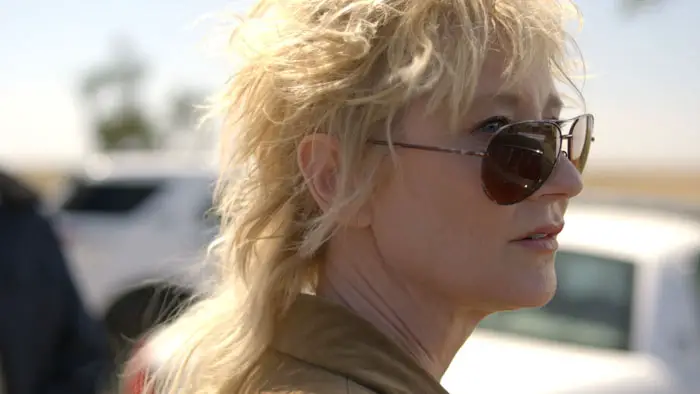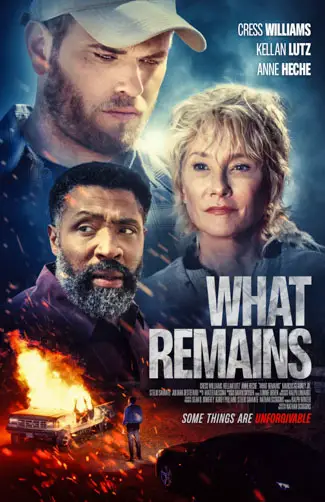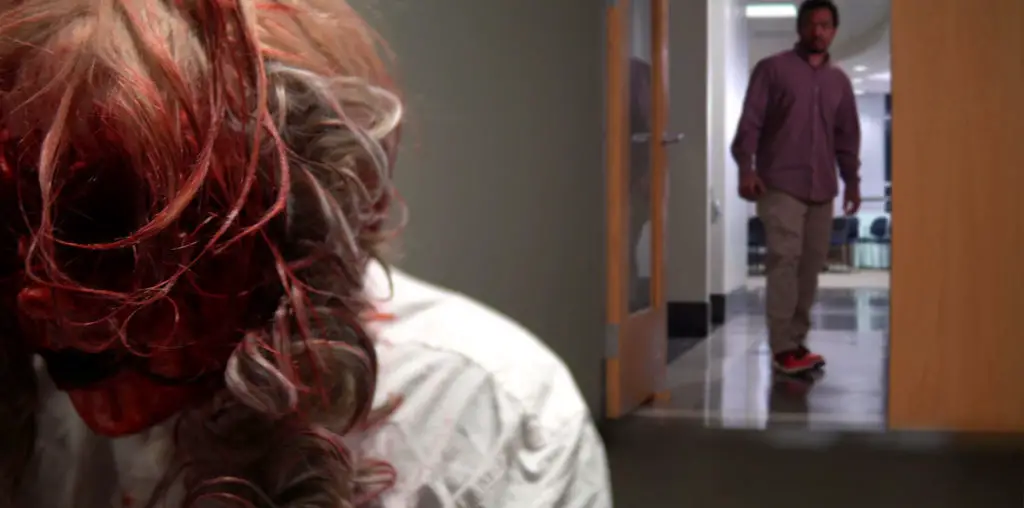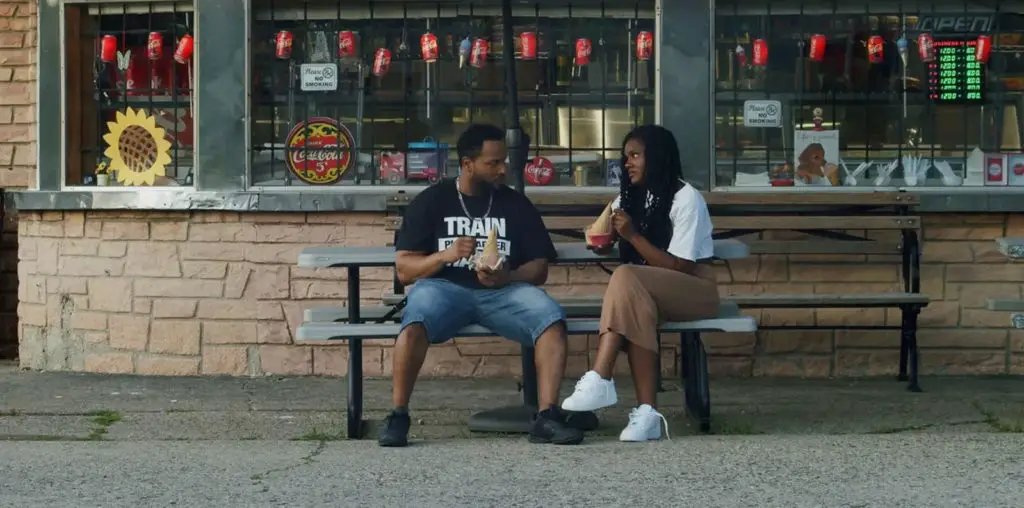
A somewhat quiet film with the slight taste of a thriller, What Remains, at its core, is about forgiveness and being unable to forgive. Writer-director Nathan Scoggins dives head first into the idea of using faith for guidance and trust. The film deals with the underlying tension between a small-town Texas pastor and his son and how developments in their lives pull each other in different directions.
Marshall Shepherd (Cress Williams) is Hope International Baptist Church’s devoted and forgiving pastor. His son, Samuel (Marcus Gladney Jr.), has just received a whole ride to Brown University. While this creates some friction, what’s causing the most trauma for the father and son is the release of Troy Parker Jr. (Kellan Lutz), who supposedly killed Marshall’s wife/Samuel’s mother five years ago. Marshall, ever devoted to his faith, is challenged by this more than expected. Marshall musters up the ability to forgive Troy, thanks to his beliefs and love of God. He has Troy come work at Hope International. But this does not sit well with Samuel, whose anger consumes him.
Meanwhile, the town sheriff, Maureen Silverton (Anne Heche), must solve a murder. Maureen, a sharpshooter who drives a pea-green Buick Skylark, asks her team to look up tire tracks. See, the police discovered a burning pickup truck and pulled out an unknown person. Are Troy’s release and this vehicular blaze connected? Will Samuel give in to hate and lash out at Troy, or does he heed his father’s lessons on forgiveness?

“…causing the most trauma for the father and son is the release of Troy Parker Jr., who supposedly killed Marshall’s wife/Samuel’s mother…”
Scoggins uses a nonlinear format to give equal credence to the parallel situations of What Remains. The confluence of someone willing to forgive and the unforgiven is interestingly explored. To forgive someone for their actions, whether accidental or not, requires incredible fortitude, which Marshall communicates quite well without being too preachy. Instead, Marshall offers a prayer journal to Troy as a method of redemption. This allows Troy to look back and recall what he prayed for so he may see where God showed up. So while the film is Christian, it is not the saccharine sort of film so often associated with the faith.
Admittedly, the film is slow to start, but as a fact-finding mission ensues, What Remains does not lose its pace as a well-constructed, engaging film where emotions run high and deep. Of course, this is all under all involved questioning devotion to faith. “Pray for those who hate you,” says Marshall, as there is power in forgiveness. As Troy and Marshall bond, the ex-convict and Samuel remain at odds. The pastor is ever-caught in between. Troy is in a strange place of entering society and ends up being close to those he hurt the most and didn’t know.
In her final film before her death, Heche delivers a very compelling and believable performance. She is plausibly committed to serving justice in this small town. When the plot has her go down a darker route, the actor faces it head-on, leaving no doubt about her dedication to solving this case. Williams and Lutz are also good throughout.
Although What Remains is slow moving it is purposeful about accepting forgiveness and moving on. Scoggins points out that many of us are lost and may not know it. He shows us that faith has a way of connecting everyone, even in the most bizarre circumstances.

"…Heche delivers a very compelling and believable performance."


